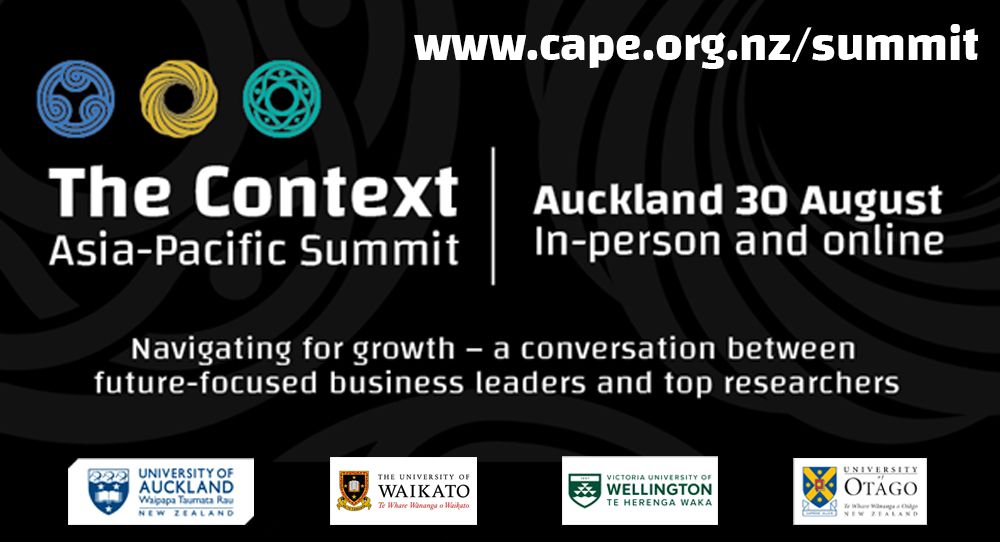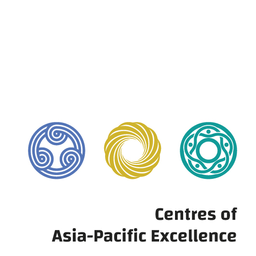Beyond the ‘who’: How purpose-driven leadership transforms organisations
Leadership is evolving from being about the person and performance to purpose and place, says Professor Brad Jackson, whose research expands the notion of leadership.

When you think of a leader, you might think of a president or prime minister, or perhaps a CEO – an individual oozing charisma with visionary ideas and powerful public speaking skills. But Professor Brad Jackson is challenging this narrow ideal, with his research that expands the notion of leadership to address twenty-first century problems.
He breaks down leadership into “six Ps”: person, position, performance, place, process and purpose. Most research has focused on the first three – person, position and performance. But Professor Jackson is more interested in place, purpose and process, which he says are the bulk of the leadership iceberg, hidden below the waterline.
“Most people get hung up on trying to understand what’s distinctive about leaders – the psychology, the profiling, it’s all very leader-centred,” says Professor Jackson. “There’s this perception that you’re either a leader or you’re not, and I question that quite profoundly.”
He’s part of a group of scholars who want to put the ‘ship’ back in ‘leadership’. After all, to have a leader, you need followers. And sometimes there isn’t a single leader, there are many.
Initially trained in geography, Jackson, now a professor at the University of Waikato, studied management gurus for his PhD – “the kind who get massive global followings, but have no authority or accountability whatsoever” – and how they influence the corporate agenda. From there, it was a natural step into leadership studies when he moved from Canada to New Zealand in 1999, bringing his multidisciplinary background to tackle questions that had been overlooked.
Finding your purpose
Professor Jackson’s explorations into new forms of leadership involved going beyond the ‘who’ to the ‘why’ – the P for purpose – with pioneering work published in 2011. He has seen significant changes since then. “Crikey, now you can’t move anywhere for this notion of a purpose-led organisation,” he wryly observes.
Becoming a purpose-led organisation is not crafting a catchy but ultimately meaningless vision statement. Professor Jackson encourages organisations to dig into their past and rediscover that initial spark, that original reason for being. Then it’s about articulating that mission in a non-generic way and owning it across the whole organisation.
“When you walk into a purpose-driven organisation, there’s a buzz. They just get what they’re about, they want to be there, it’s really important to them,” says Professor Jackson. “It’s a bit clichéd, but I think COVID has really exposed people to purpose – why am I doing this? If it’s important to individuals, it’s important for organisations.”

Money talks: A new generation of ethical investors
Another part of the ‘purpose’ revolution is broadening focus away from financial rewards as the only ‘dividends’ worth pursuing. Professor Jackson points to ‘a theory of good dividends’ which encompasses human, social, environmental, community and institutional capital as well as economic. He reckons businesses and large organisations can be just as powerful in creating positive change as governments. But how can we get big business to switch tack away from focusing solely on financial payback?
“Money talks,” says Professor Jackson, “and you’ve got these very strong, very active shareholders driving the environment social governance agenda.”
In other words, change is already happening. Investors and shareholders are already demanding that businesses report using the ESG (Environmental, Social, and Governance) framework and have initiatives like climate mitigation plans (with teeth, not just empty platitudes).
“There are still some pretty crunchy finance-driven organisations out there,” Professor Jackson concedes, “but this generation of ethical investors is actually changing and impacting thinking in a quite serious way.
“You'd be amazed in the last three or four years how big companies globally but also within NZ have had to change and adapt in terms of what they're measuring, who they're engaging with and how they're engaging.”
Most of this change is happening overseas, while Aotearoa New Zealand has remained relatively sheltered from these emerging market forces – for now.
To make change, think bigger
This reimagining of corporate leadership goes hand-in-hand with reconceptualising the leader-follower relationship, says Professor Jackson. Now, we should be focusing on leader-stakeholder relationships, with customers, citizens, iwi, investors, regulators, community groups and employees connecting up in a big web of influence, and forming a powerful collective for change.
To tackle complex problems like climate change, pandemics, environmental degradation and food supply, we need this new kind of systemic leadership that transcends individual organisations and is truly cross-sectoral.
For inspiration, we can look to different cultures and countries.
“We need to be aware of what’s going on globally, so we don’t keep telling ourselves the same stories over and over again,” says Professor Jackson.
In the favelas of Brazil, leaders bubble up like freshwater springs
One example lies in the favelas of Brazil – working class communities that organically spring up on the outskirts of a city, historically ignored and neglected by government. While they are home to strong and creative communities, many people face a variety of complex problems associated with poverty and various insecurities in their daily lives.
Professor Jackson visited one of these favelas in São Paulo, where his then-PhD student Renato Souza from Fundação Getulio Vargas (FGV – a Brazilian higher education institution and think tank) in Sao Paulo was studying the way the favela community self-organises, and informal leaders emerge.
Through the favela examples, the importance of place-based leadership emerges: “Where you are creates a possibility for leadership, but it also constrains leadership,” says Professor Jackson. Place influences person and purpose, but also the process of constructing a leader.
And in the favelas, there is more than one leader.
“It’s collective leadership, and there were some leaders [in the favela] who were not as visible as others, but they were still critical in keeping the organisation going,” says Professor Jackson.

Here in New Zealand, we can learn from these strengths of favela leadership. We can use our place as an anchor and driver for leadership, as opposed to the charisma of a single individual.
Plus, New Zealand is “generally quite weak” on collective leadership, according to Professor Jackson, thanks to the individualistic influence of the dominant Anglo-Saxon culture. “But we’re privileged to have te ao Māori tikanga and kaupapa here,” says Professor Jackson, pointing out that Asian cultures also often have collectivist philosophies.
“We haven’t really drawn on these concepts, but we could become much more successful, collaborative leaders if we did.”
Leadership moments
There’s a phenomenon in leadership studies, a fleeting collective feeling which Professor Jackson calls a ‘leadership moment’. It’s a moment you might’ve felt before in a boardroom, meeting or conversation, where the atmosphere shifts. The group unites over their common purpose, direction and a shared identity, and forges ahead with change.
“You can’t go ‘right we’re going to have a leadership moment’,” says Professor Jackson, “It’s more of an art. You can’t force it. But you can create possibilities for it to happen.”
Perhaps, a new type of leadership is not only possible but probable.

Research readings
Professor Brad Jackson's research on leadership includes:
- Kempster, S., & Jackson, B. (2021). Leadership for what, why, for whom and where? A responsibility perspective. Journal of Change Management, 21(1), 45-65. (Paywalled)
- Souza, R., Wood Jr,, T., & Jackson, B. (2021). What favelas can teach about leadership: The importance of shared-purpose and place-based leadership. In D. Singh, R. Thompson, & K. Curran (Eds.), Reimagining Leadership on the Commons: Shifting the Paradigm for a More Ethical, Equitable and Just World (pp. 119-135). Emerald Publishing. (Paywalled)




